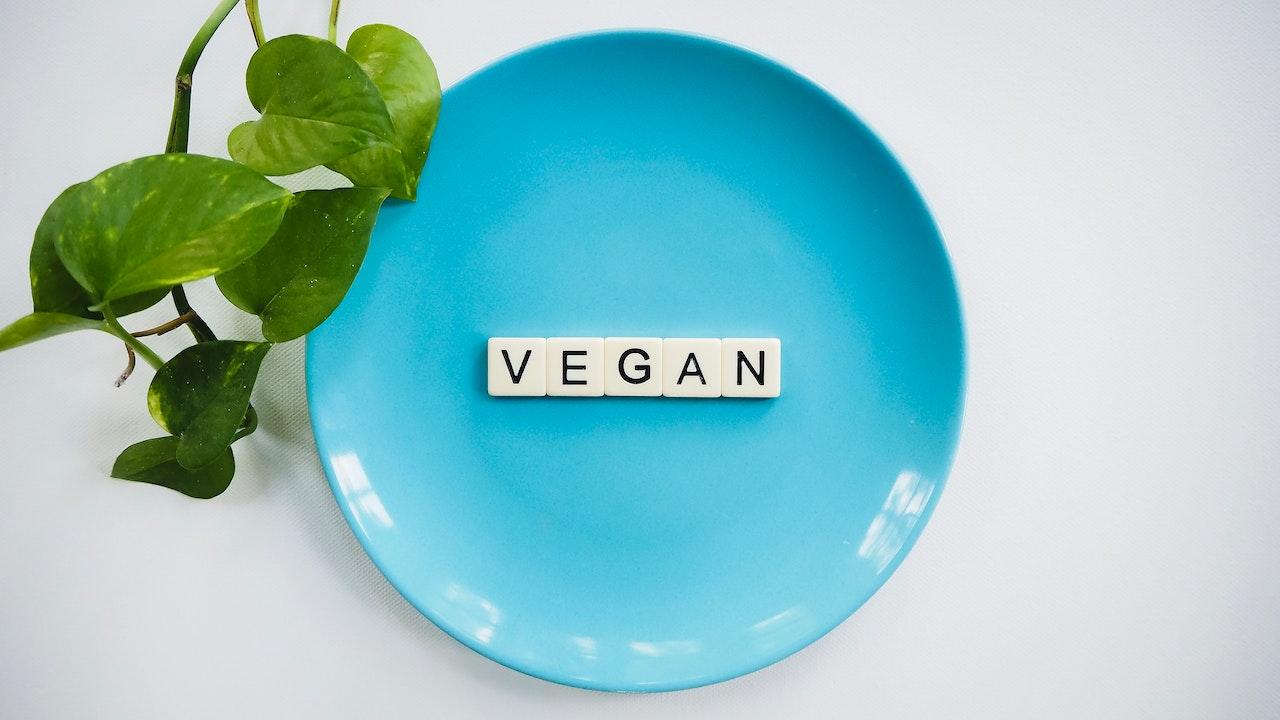The concept of plant-based milk is very prevalent in many cultures. It has gained popularity in recent years in India as well. Individuals are switching to veganism and favor plant-based milk over animal milk for many reasons. It could be due to their concerns about ecology, the welfare of animals, or changes in their interests.
Cow milk consumption and its influence on human diets, cows’ well-being, and the climate are all major public concerns today. There are concerns about the growing demand for dairy-free milk. Presently, there are numerous plant-based replacements available in India. The market has grown as 65% of the world’s inhabitants are lactose intolerant according to a survey by the world population review.
In the presence of a plethora of possibilities, how can we tell them apart and pick which dairy items are best for us? Let’s look at the most popular options on the Indian market right now to see which is the best.
Why do we need plant-based milk?
Plant-based milk is a healthful substitute for dairy milk. Due to an allergic response, some people prefer dairy-free milk. Even if cow’s milk does not bother you, examine the health advantages of plant-based milk, which include
There are no hormones
Cows make milk during lactation and pregnancy when the hormone estrogen naturally increases. Dr. Hunnes says that cows in industrial farms, where 70% of cows are produced, have repeated conceptions that lead to exceptionally high hormone levels. That naturally occurring estrogen finds its way into your dairy milk.
“The effect of this additional estrogen on people’s well-being is still debatable, and there is a lot of contradictory evidence,” adds Dr. Hunnes. “However, some research suggests that it may increase the incidence of chest, ovarian, and tumors.”
Less fat and calories
Some dietary features of plant-based milk, such as salt and potassium, are similar to those of cow’s milk. However, most dairy replacements are lower in fat and calories. Most plant-based milk has 37% to 75% less fat than one mug of whole-fat cow’s milk. Many dairy-free kinds of milk, such as almonds, rice, coconut, hemp, and cashew milk, have fewer calories than dairy milk, states the American Society of Nutrition.
Sugar reduction
Unflavored plant-based milk provides an option to ingest fewer sugars than dairy milk. Many are clueless that cows’ milk contains 12 grams of carbs from milk sugars or lactose. The tasteless plant-based milk variants have only one gram of carbs. We are healthier when we consume fewer sugars.
List of 8 plant-based milk alternatives in India you must try
1. Epigamia Almond milk
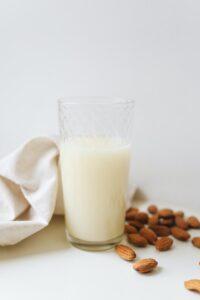
It has a pleasantly sweet and nutty flavor and is popular owing to its low caloric and amount of fat. Epigamia, with 4% almonds and twice the Vitamin A and D as toned milk, is a healthier alternative that feels just as nice. It offers a gluten-free plant-based beverage.
2. Bevry Oat Milk
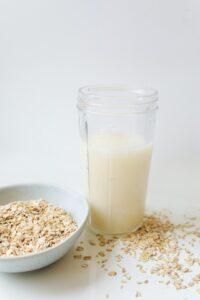
Oat milk seems to have a thin texture and a light flavor. It has rich fiber and includes enough vitamins, such as calcium, vitamin D, and riboflavin, to promote ocular and healthy skin.
Furthermore, research has shown that consuming oats every day can aid digestive disorders. Oat milk can help decrease cholesterol levels in the blood. It is created by soaking and combining oats with water and has a creamy consistency and a soothing oaty flavor.
3. Banana Milk
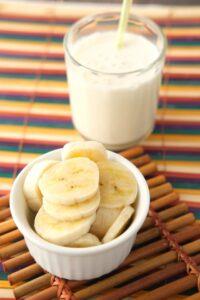
Because it contains genuine bananas, this milk has a lot of flavors, yet it’s not overbearing. It has a rich creamy consistency than many other milk substitutes and tastes great in milkshakes or quick cereal. Proteins and vitamin D, on the contrary hand, must be supplied from other sources.
4. Dream Rice Milk

Rice milk is extremely simple to make ourselves and has a higher fiber content than all other non-dairy options. It’s one of the most common chai alternatives and can be utilized in a wide range of dishes. Rice milk is a popular energizing drink because it is high in carbs and high in vital nutrients, magnesium and phosphorus.
5. Sofit Soy Milk
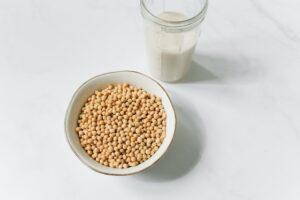
Soy milk, a popular plant-based milk, is made from beans and shares a similar protein concentration to cow’s milk, making it the only plant-based dairy alternative with such a resemblance. It delivers appropriate nutrients, similar to cow’s milk.
Calcium, along with vitamins B12, B2, D, and A, are routinely added to soy milk. To name other flavors of soy milk are vanilla, cocoa, and bananas. Soybeans are marinated before even being crushed into a fluid and cooked to make milk.
6.Walnut Milk

This vegan milk, which contains the goodness of walnuts, is great for wellness and lactose-intolerant persons who want to improve their protein consumption. Walnut milk is a fantastic source of antioxidants, omega-3 fatty acids, multivitamins, and magnesium. Walnut milk is gaining popularity in India.
7. Coconut Milk
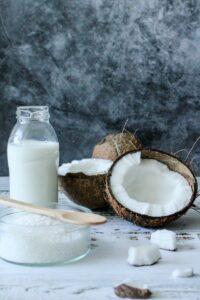
If you think cutting up eating ice cream or other delights meant becoming a vegan, think again. Coconut milk can be of assistance. While almost any dairy-free replacement can be used to produce desserts and other dairy-based pastry products, coconut milk is the favored option since it most nearly resembles the flavor and texture of dairy.
It is also high in potassium and goes well with almost any cuisine. Coconut milk is widely available in the market. Because coconut milk is thick, we recommend thinning it with either one or two water cups to your liking.
8. Hazelnut Milk

Hazelnut milk has a nice nutty flavor and is high in folic acid and calcium. It is occasionally given to pregnant moms because folate aids in reducing the risk of central neural tube abnormalities such as spina bifida.
It performs well enough in cooking and can be utilized to add a nutty undertone to coffee or hot chocolate. The hazelnut is toasted, soaked, then combined with water until it resembles nutty milk in appearance and consistency.
Benefits of plant-based milk
1. Promotes Weight Loss
Choosing a dairy-free lifestyle will assist you in losing weight since most milk products are high in fat and sugar. Fat and inflammation within the body might be heightened by excessive sugar and fat intake. You will notice a shift in your body within the first week of starting the dairy-free lifestyle.
2. Enhances Digestive Health
Dairy is sometimes blamed for stomach issues such as diarrhea, indigestion, stomachache, and inflammation. When a person transitions to a dairy-free lifestyle, they may experience a healthy stomach since these symptoms resolve when dairy items are eliminated.
3. Enhances Skin
Many experts suggest that consuming milk products may contribute to acne-prone skin. It could be due to the growth factors found in cow milk. However, if a person stops using milk and similar items, their face will appear fresh and beautiful, free of pimples and acne breakouts.
4. There are fewer allergic reactions.
Milk products frequently induce unpleasant allergy reactions such as itchy mouth and vomiting. It is normally best to avoid milk and instead drink plant-based milk and associated products to avoid such sensitivities.
Conclusion
Plant milk provides environmental and nutritional advantages and helps reducing your carbon footprint. Substitute milk product plants use less land, water, fertilizer, and energy to generate than milk production. Plant milk is a great option to cow’s milk for persons who want to eat a plant-forward diet, however, they aren’t all medically similar. Plant milk is lower in cholesterol and carbohydrates than cow milk and contains some of the nutritive value of the whole plant.

